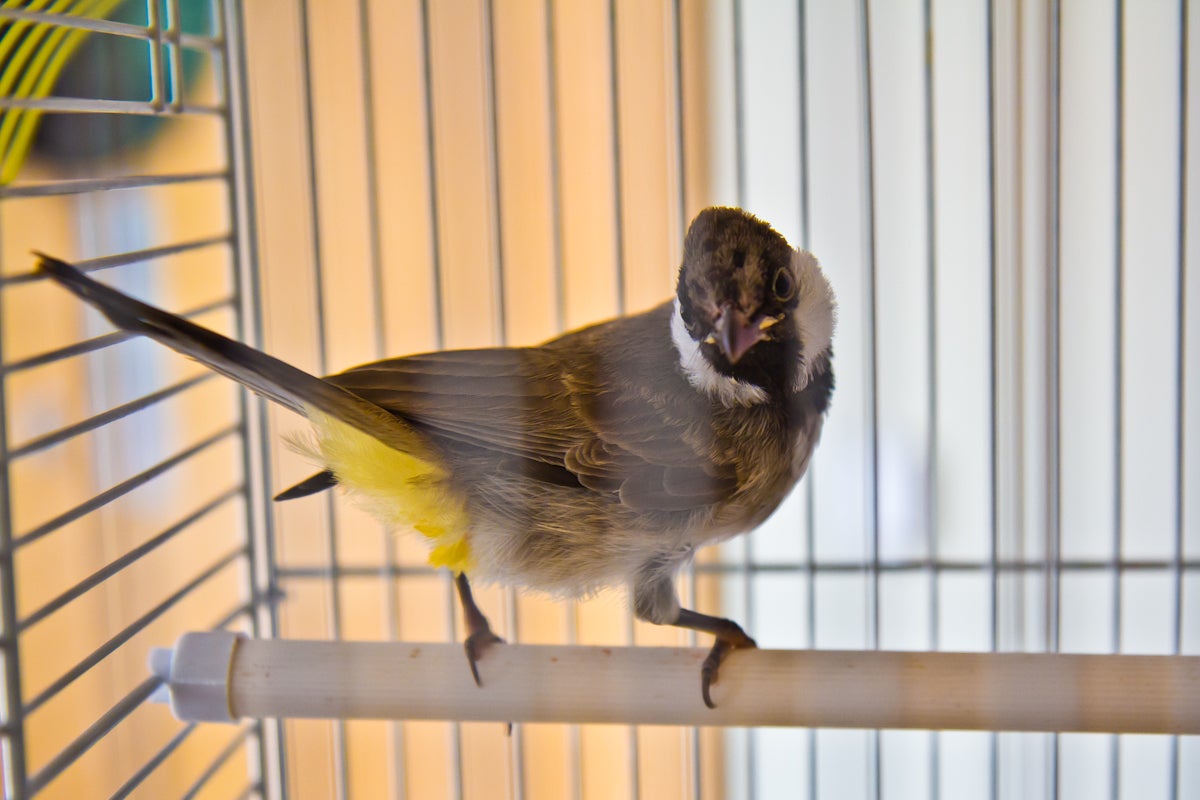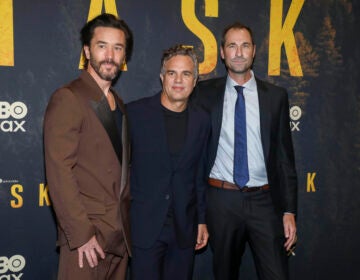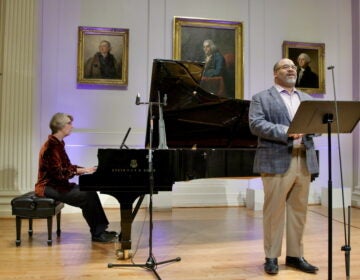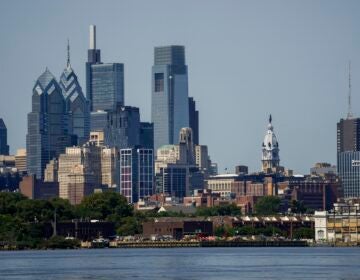‘Radio Silence’ weaves stories of Iraq into show outside Independence Hall [photos]
Listen
Bajhat, an Iraqi bulbul, is singing as part of the celebration of Radio Silence. (Kimberly Paynter/WHYY)
Imagine a large theater set depicting a Mesopotamian Ziggurat, decorated with Iraqi national symbols and you’ll get an idea of the multimedia performance taking place Sunday outside Independence Hall. It is called “Radio Silence” and connects Iraqi refugees with American veterans who fought there.
Radio is important for Iraqis and Radio Silence is the voice of the immigrant and exile community in Philadelphia. For multimedia artist Michael Rakowitz it all started when Bagdad’s famous broadcaster Bahjat Abdulwahed, often described as the Walter Cronkite of the Iraqi airwaves, decided to leave his war torn country and moved to Philadelphia in 2009.
Bahjat’s broadcasts were a combination of news, music, and current events. He was the voice of authority, trusted and respected. Michael Rakowitz whose family is Iraqi, had the idea of recreating Bahjat’s old radio program in exile. The project was underway when Bahjat became gravely ill and died in 2016. Rakowitz had managed to complete only one long day of interviews. It was a hard blow to all the plans they had put together, he says.
“When he died the story became more sad and more real. Because it loses his voice more poetic, because the voice of Iraq loses its voice,” Rakowitz said.
But not for long, says project curator Elizabeth Thomas, who collected the materials to create a 10-part series of future radio broadcasts. “With Bahjat’s death this idea of silence of our host as a ghost changed the nature of the project and Michael became his surrogate voice,” she said.
National policies towards Iraq immigrants and refugees had shifted during that time.”In fact some of the people participating will not use their last names for fear of reprisals in Iraq or their own citizenship status here. So the speaking of both being present and visible at the seat of American democracy have come to mean and represent very different things for people now,” she said.
Hence the performance outside Independence Hall takes on a more urgent and relevant tone. “One can be in silence and in a state of remembering, one can be in silence with somebody else and know that they are grieving in silence,” said Rakowitz.
The Radio Silence team is hard at work in creating the program as series of collages of interviews with Iraqi Immigrants, musicians and other artists. It includes newscasts in Arabic and English and audio memories . Finally it adds the voices and experiences of American veterans of the Iraq war in the poetry and narratives of the Warrior Writers group.
The show, has transformed into a double narrative, featuring cultures forced by war and occupation to intersect. It became the voice of the new Iraq in exile in Philadelphia says Rakowitz.
“With these two groups of people that have been to Iraq, the Iraqi’s that have ended up here as a result of the war, and of course, the veterans that have been to that place with other experiences it becomes a way of not necessarily whitewashing Iraq with just the happy memories but that it was a place that was full of dreams and aspirations that were interrupted by a succession of wars that didn’t stop from 1980 onwards,” he said.
Radio Silence is a Mural Arts project, a part of the group’s Monument Lab initiative.
And you can’t get more monumental that an event in front of Independence Hall. The audience will not only see the live production of an unconventional radio program but will be surrounded by music, poetry and food.
WHYY is your source for fact-based, in-depth journalism and information. As a nonprofit organization, we rely on financial support from readers like you. Please give today.




